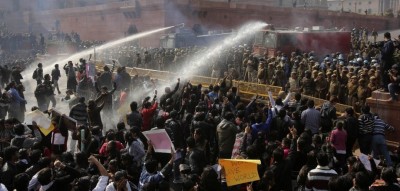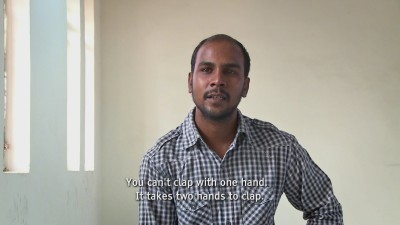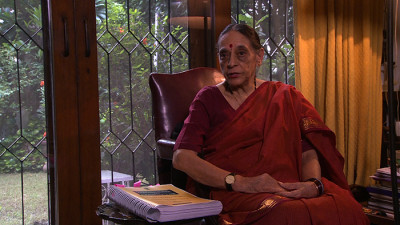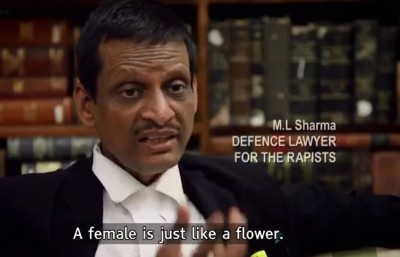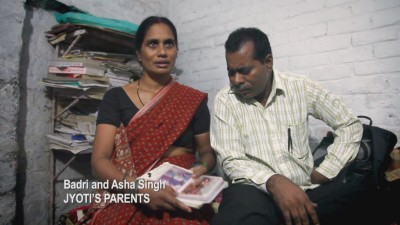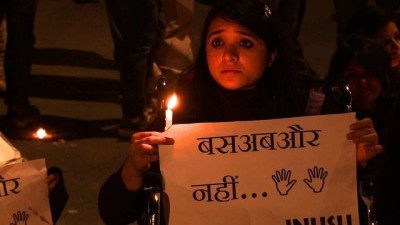In December 2012, the world was rocked as mass protests erupted in India following the gang rape of 23-year old medical school student Jyoti Singh on a bus in Delhi. Not only was she gang raped by six men (including one minor), but she was eviscerated, her entrails ripped from her body and she, and Awindra Pratap Pandey, the young man with whom she had gone to the movies that night and who was also severely beaten, were thrown naked from a bus onto the side of a freeway. A trucker saw them and stopped to get help. Within 24 hours the story had gone viral and protests rocked the entire country of India with mothers, daughters, children all in the streets demanding justice for Jyoti, now known as “India’s Daughter”. The protests lasted for days and turned violent when the government escalated its movements to stop the protests, using tear gas and water cannons. Jyoti Singh ultimately died two weeks later. Within 17 days, government pressure on local law enforcement had the Singh rape and murder in the hands of prosecutors.
Unlike the United States, India has an equal rights amendment as part of its Constitution. Despite this, the cultural mindset of the country still does not see women as equal to men and thus, many believe that Jyoti Singh “got what she deserved”. But as documentarian Leslee Udwin shows us in “India’s Daughter”, like the Phoenix rising from the ashes, so is a galvanizing of the world in response to this tragedy.
Udwin has developed a very well constructed and balanced documentary. We enter into the world of Jyoti Singh not only through her parents (whose interspersed interviews will break your heart), but through her former tutor and close friend who lays out a clear, unemotional but genuine foundation which is then built upon like a courtroom trial going back and forth between prosecution and defense, with indisputable non-party evidence (treating doctors, Deputy Commissioner of Delhi Police Pramod Kushwa, the surveillance tapes) cogently presented. Politicians like Leila Seth, former Chief Justice Member of the Rape Review Committee, and input from Oxford University historian Dr. Maria Misra, give cultural and political perspective.
Surprisingly, Mukesh Singh (no relation to Jyoti), the driver of the bus who still maintains he did not participate in the rape, but who has been convicted based on evidence at trial, agreed to speak with Udwin. In 16 hours of prison interviews culled down for this documentary, Singh is candid and cold, replaying the events of that night, showing no remorse for anything that happened and, in fact, goes so far as to say that be it Jyoti Singh’s rape or the rape of any other woman, it is the fault of the woman. A mindset that permeates the country despite its laws, we hear similar thoughts from two of the defense attorneys, one who goes so far to say that if his wife, mother or sister went out with anon-relative male companion after dark, he personally would take a can of gasoline, douse them with it, light them on fire and let them burn to death. So ghastly and chilling, one wants to reach through the movie screen and strangle every breath from them.
Interviews with parents of the rapists and the widow of one who allegedly committed suicide in jail, are cold and calculating; insensitive to the death of someone at the hands of their sons. However, it’s these interviews that reveal much about the culture itself and the cultural divide with progress and the 21st Century. They also provide a backdrop for the global change that is occurring, and the issue of gender equality as a human right.
Udwin also ups the ante with the actual surveillance footage of the bus, Mukesh Singh’s face and the “body dumping”. Your heart is in your throat as the footage plays and you see the bus drive the same circuitous route over and over again, knowing what is happening to Jyoti Singh inside and given we are unaware of what exactly the cameras captured on that fateful night and what we will see. Trust me when I say you are white-knuckling it in these moments.
“India’s Daughter” is not just Jyoti Singh’s story, but the story of a nation, of the world, as documentarian Leslee Udwin goes behind and beyond the world shattering events of 2012, shining a bright light on the issue of gender equality and the need to change the mindset of the world. A documentary that needs, must, be seen by every man and woman. A documentary for the world.
Directed and produced by Leslee Udwin

